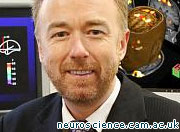Severely brain damaged patients could soon be able to communicate with other people and steer a wheelchair, according to a leading neuroscientist.
The news will undermine the arguments of euthanasia campaigners who say such patients have no hope of a ‘meaningful’ life.
Earlier this year Dr Adrian Owen and his team successfully managed to communicate with a patient in a ‘persistent’ vegetative state.
Achieved
Dr Owen was able to get “yes” and “no” answers using a technique known as functional magnetic resonance imaging (fMRI).
Now Dr Owen believes that similar results could be achieved by using a much smaller and cheaper device, known as an EEG machine, which would allow patients in a vegetative state to interact with the world via their brain’s electrical activity.
Dr Owen explained: “I would never have believed that within a few years we would be actually communicating with a patient who was in a persistent vegetative state”.
Communicate
He added: “We have seen something that is quite extraordinary. We now have a moral and ethical obligation to find ways for them to communicate properly.
“We cannot be putting them in a fMRI scanner every time they want to communicate. It is very expensive and they are not portable and not available everywhere.
“EEG could work as well and it is cheaper and portable. I feel it will be possible for people to steer wheelchairs and be able to communicate.”
Overcome
Dr Owen and some of his research team are set to continue their research by moving from Cambridge to the University of Western Ontario in Canada where they will have access to funding.
Last month it was revealed that a pensioner had overcome all the odds and amazed doctors by recovering from an illness which left him completely paralysed from head to toe.
Graham Miles, who felt he had been “left to die” by medical staff after having a massive stroke, was suffering from ‘locked-in syndrome’, a condition which locks an intact mind into a paralysed body.
Die
He said within weeks he was “left to die” by medical staff and tried to communicate his concerns with his family using a spelling board.
He remarked, “the prognosis was either death or living death as a vegetable”.


